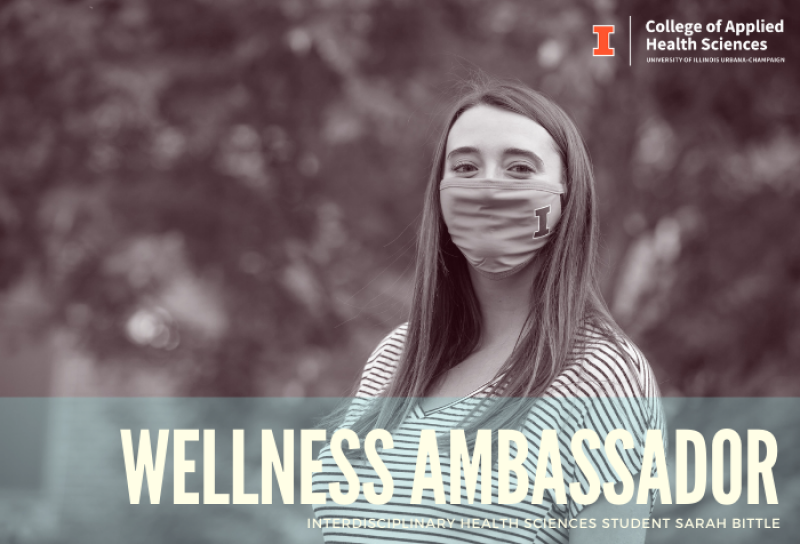
Wellness Ambassador Sarah Bittle talks about COVID and campus
Wellness ambassadors support the University of Illinois' COVID-19 educational compliance efforts by providing health resources to the university community. The College of Applied Health Sciences is proud to boast several students who are participating in the Wellness Ambassador program. Periodically, we'll speak with a student about what they have encountered in their role. Today, it's Sarah Bittle, a student in the Interdisciplinary Health Sciences.
Q: What kind of training did you receive to become a Wellness Ambassador?
A: As a Wellness Ambassador we received plenty of training. While the majority of our trainings have been via Zoom, we’ve talked with the Champaign-Urbana Public Health District, McKinley and others to make sure we are properly educated on the proper safety measures we should be taking ourselves, as well as encouraging others to do also. We’ve had social media and interview trainings as well.
Q: What kind of activities are you performing while working?
A: While we’re on shift we are usually handing out our Wellness Kits and other Covid testing information. We’re currently working on some other campaigns to better support our students on campus and soon we will also be assisting with McKinley’s Flu Shot Campaign.
Q: How many hours do you work a week?
A: I work about 7-10 hours per week.
Q: Where are you stationed?
A: Every day can look different. Some days we’re stationed at testing sites, some days we set up around a more populated area of campus such as the (Ikenberry Commons Residence Hall) or the (Gies College of Business Instructional Facility), and other days we just walk around campus.
Q: What challenges have you faced in doing the job?
A: Something I’ve been challenged with is just being able to find the most effective way to both reach people and support them during these strange times.
Q: What kind of reactions do you get from students or faculty when you encounter them?
A: Most students and faculty respond very well when they see us around campus. They’re excited about the free kit and are glad that we have this type of resource on campus.
Q: What’s the toughest part of the job?
A: Personally, it’s knowing that I can only do so much. We can educate and give out these resources, but at the end of the day it will be up to each individual to make the right choices to keep themselves and others around them safe.
